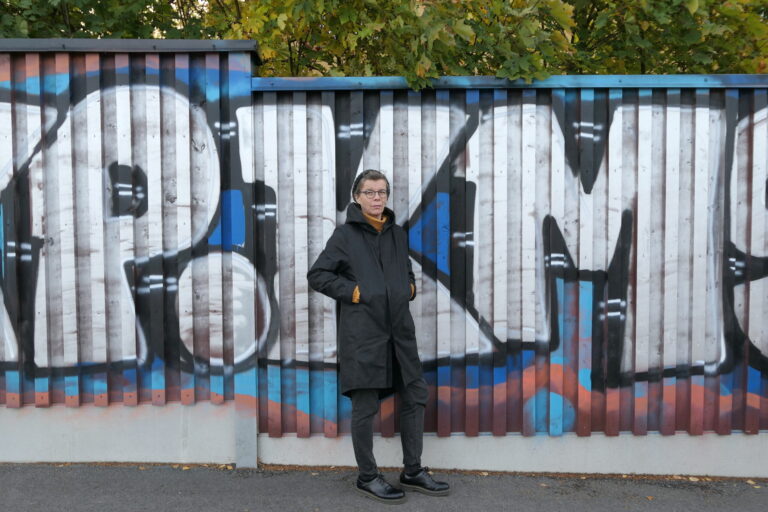
Tampere University, 13 September 2024
Location: auditorium VIRTA 109, Åkerlundinkatu 5, Tampere
The symposium “Rethinking Epiphany – Perspectives from the Fringes” is a one-day event to be held Friday, September 13, at Tampere University, Finland.
In literature, epiphany is considered as the moment of revelation, illumination, or enlightenment of a fictional character. Epiphany has been associated particularly with modernist literature, and with the foregrounding of powerful moments of heightened significance in the works of Virginia Woolf, James Joyce, and their contemporaries. This symposium considers the legacy of such “moments of being” (Woolf 1939) and proposes new perspectives to challenge or enrich our understanding of modernist forms of epiphany. It is particularly interested in interdisciplinary approaches to the study of epiphanies, as well as in how perspectives from the fringes add to our understanding of epiphany.
Full Programme here
Keynote speakers:
Nigel Fabb, University of Strathclyde, Glasgow, UK
Päivi Mehtonen, docent, independent scholar, Finland
Sustained Epiphanies. Medieval mysticism in recent experimental prose
Päivi Mehtonen
“That epiphanies are brief and surprising is noncontroversial”, asserts an important poetics of literary epiphany, that sees scenes of realisation as a feature of particularly modern and modernist writing. My paper revisits this commonplace by exploring instead non-modernist prose in which revealing scenes often appear as protracted and even exaggerated processes.
Robert Glück’s Margery Kempe (1994) and Julia Kristeva’s Teresa, My Love. An Imagined Life of the Saint of Avila (2008, Thérèse mon amour) rewrite medieval theophanies, mystical-bodily passion and romance as touchstones of contemporary narrative. The context and content of Glück’s novel is the poetics of the so-called New Narrative group in San Francisco, based on the open appropriation of received material and borrowed genres. Likewise, Kristeva’s Teresa, My Love openly manifests the author’s non-fiction theses in rethinking the novel as the result of a redistribution of different sign systems: courtly love, scholastic discourse, devotional literature, autobiography.
Using comparative analysis and the hermeneutics of revelation, I focus on the ways in which the two works create and disrupt tensions between medieval theophanies, modernist epiphanies, and their later variants, whatever they may be called. Suggesting the tentative concept of ‘sustained epiphanies’, I explore literary devices such as the presentation of history as the medium of the epiphanies of love, rejection and passion; the constantly merging and overlapping epiphanies; and the extensive ways in which prose diction appeals to the language of epiphany in the representation of crises of desire (Glück) and psychoanalysis qua religion (Kristeva).
Bio:
Päivi Mehtonen is an independent scholar, writer and comparatist (Ph.D, the title of docent), working at the intersections of experimental prose, medievalism, and mysticism as literature. Her recent work has appeared in Jacob Böhme in Three Worlds (De Gruyter, 2023) and Deutsche Vierteljahrsschrift für Literaturwissenschaft und Geistesgeschichte (Springer, 2024). Mehtonen’s latest monograph is a poetics of abstractionism in literature, Abstraktin kirjallisuuden nousu ja tuho (Poesia, 2022; The Rise and Fall of Abstract Literature).
Epiphany and surprise at the lack of variation
Nigel Fabb
Epiphany can be conceptualized as an experience of sudden and profound knowledge, where what is known cannot (usually) be put directly into words. It happens in real life, and it is represented as happening to characters particularly in modernist fiction. Epiphany and related experiences have been theorized since at least William James’s study of mystical experience (which combines the noetic with the ineffable). I argue that epiphany arises from the general human psychology of surprise, which arises from a perception which significantly violates a schema (our abstract knowledge of the world). I show that this is compatible with variations between individuals and cultures in whether epiphanies are reported and represented.
One universal and basic schema, something everyone knows, is that things and events (as tokens) vary both from one another and from the psychological type which underlies them. So, all cats differ from one another, and they all differ from the abstract ideal or perfect type of cat. When there is insufficient variation, or identity, between tokens or between token and type, this violates this basic schema and so can trigger surprise. Surprise in turn can be elaborated into an experience of epiphany: surprise always involves coming to know something new and in epiphany this is felt to be new, profound, and often ineffable.
Surprise at a lack of variation may be the basis for the epiphanic effect of ordinary things and events, when they are suddenly perceived as unique, and hence where the token and the type are identical, violating the basic schema. I explore some of the reasons why a thing or event might be perceived in this way, illustrated from life and from literature.
Bio:
Nigel Fabb is Professor of Literary Linguistics at the University of Strathclyde and holds degrees in English (Cambridge, 1980) and linguistics (MIT, 1984). He is the author of twelve books, most recently A Theory of Thrills, Sublime and Epiphany in Literature (Anthem Press, 2022), and (with Venla Sykäri, eds.) Rhyme and Rhyming in Verbal Art, Language and Song (Studia Fennica Folkloristica, 2022). He is currently writing a book on the linguistics of song with Myfany Turpin (U. Sydney).
Main page image: Jousia Lappi, City of Tampere






